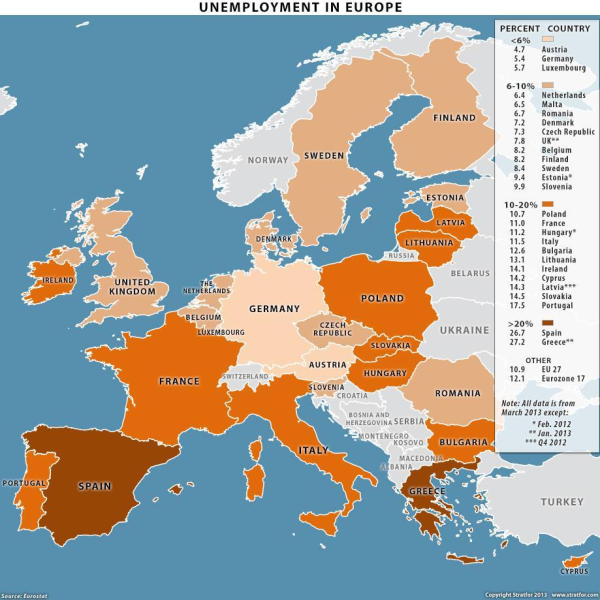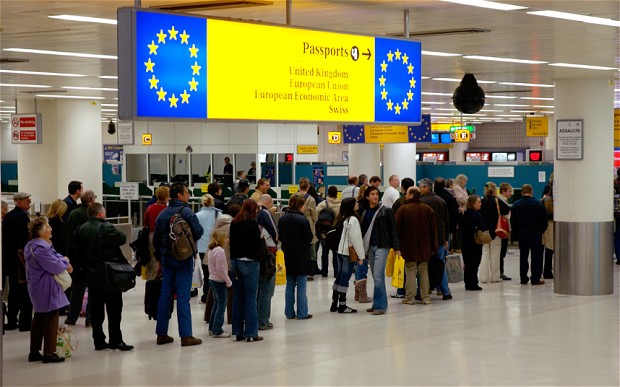The strong performance of extreme populists in the European elections may provide them with good starting positions for the national elections, which will be held in Belgium next year and in the year after next in the UK, where the pressure for a referendum on the country's membership in the EU is not weakening.

In other words, the most difficult phase of the financial crisis is probably close to its end. There is no existential threat to the euro, the markets have calmed down, there are weak signs of gradual recovery. However, the record unemployment rate of over 26 million people, or 12% of the labour force, remains as well as the significant imbalances between the member states. In Greece, the unemployment rate is 27.4% whereas in Austria it is 4.8%. These imbalances usually create social, economic, migration and political tensions. To reduce them, Europe needs to create the banking union and the mechanism for financial responsibility and solidarity, which is still in its project stage. However, this will be more difficult if the populists win more votes during the elections.
Voter participation in the European elections is usually low and analysts say that this is because the European institutions are not close to the citizens. Do the EU leaders understand the problem? Are any steps being taken in order to bring the institutions closer to the citizens of the member states?
As far as I can remember, the voting activity in the last European elections in 2009 was historically the lowest, 43% as compared with 45.47% in 2004 and 61.99% in the first European elections in 1979. The graph of voting activity shows a declining interest in Europe on the part of the Europeans. This trend cannot be explained only by the crisis because it was a fact during years when the economy was in good shape. We know the explanations related to the remoteness of the EU from the ordinary people, the bureaucracy of Brussels, its difficult and incomprehensible language, the heartless European officials and their remoteness from real life. They have grounds but this is the apparent, populist side of things.
The hidden side is that this Europe, with which we are dissatisfied, has been established by the member states and its weaknesses and incompleteness reflect their selfish interests. The shortcomings of the EU are often projections of short-term internal political considerations of the member states. The most recent example is the agreement of the finance ministers regarding the common mechanism for the restructuring of insolvent banks. The European Parliament is right to disagree with it, because the scheme to resolve banking crises is too complicated. In addition, it is clear that this is under the dictates of the main payer in the euro zone, namely Germany, which aims to calm down the German voters, stating that they will not pay for the bank failures of other EU countries.
We often see that the national leaders are generous in terms of words in support of Europe, when they are in Brussels, and that they justify their internal failures with Europe when they return home. A typical and pathetic example of this is British Prime Minister David Cameron, who is trying to raise his rating by promising the British people that he will protect them from the imaginary Bulgarian-Romanian invasion which will follow the opening of their labour markets on 1 January. This is a pathetic, helpless, populist behaviour for a conservative.

Such things are demoralising and discouraging. How should the people believe in Europe when their leaders do not?
The Bulgarian ministers are dying to visit Brussels, stand before the cameras and solemnly declare that they have had such and such conversations in which they "have protected the national interests." From whom do they protect it? Is it from Barroso? As if, Europe is a foreign power. As if, it is not our Union. As if it is a colonial metropolis which we have joined against our will rather than voluntarily. When these same politicians are involved in an election campaign they will shamelessly decorate themselves with European labels and will promise their voters "Euro-so-and-so" things. Do you think that the participation in the European elections will increase in the presence of such a trend? People do not go to vote when they know that they will have to vote for "blah - blah." If we want the Europeans to believe in Europe, we must not underestimate their intelligence and power of observation. The so-called "ordinary people" see and realize. Falseness is disgusting to them.
The low voting activity favours mostly populist parties that have hard and mobilised electorates. This was the case during the last elections and it is expected that the same thing will happen during the upcoming elections.
What are the chances of the European Socialists retaining their leading role in the European Parliament under the leadership of Sergey Stanishev who, at least in Bulgaria, is a symbol of corruption, of the connections of the government with the criminal interests and the old totalitarian regime?